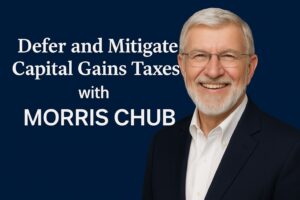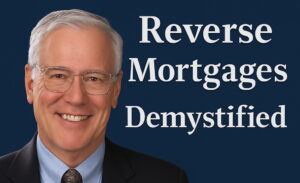It’s no secret that some investment options are confusing. While doing your research, you may come across terms you’re not familiar with. For example, many real estate investments are open to “accredited investors” only. What does this mean, and how does it apply to 1031 exchanges? The following guide will tell you everything you need to know.
What is an Accredited Investor?
The term “accredited investor” was created by the Securities and Exchange Commission (SEC) to describe a certain type of sophisticated investor. It’s defined under Rule 501 of Regulation D in the Securities Act of 1933.
To qualify as an accredited investor, you must meet the following requirements:
1. Earn an annual income of at least $200,000 (individual) or $300,000 (joint) in the past two years.
2. Have a net worth of more than $1 million (excluding the value of your primary residence), either individually or with your spouse.
You must also reasonably expect to maintain the same levels of income in the future. Due to their financial success and presumed experience, accredited investors are considered sophisticated. It’s assumed that they have enough experience to understand complex investment vehicles.
Rule 501 also defines accredited investor status for organizations. This includes trusts, companies, and other entities.
Why Are Some Investments Restricted to Accredited Investors?
Under normal circumstances, investment securities must go through a registration process before they’re offered to the public. This is intended to protect investors from getting involved in securities that are fraudulent, overly-complex, or illiquid. However, the registration process can create a financial burden for investment companies. For this reason, there are many exceptions that allow issuers to avoid registration.
If a company wants to avoid having to register its offerings, they often must agree to limit their sales to accredited investors only. The SEC assumes that individuals who have reached accredited investor status are capable of thoroughly evaluating an investment offer. This includes determining the merits of the investment and evaluating its potential risks. Only after this evaluation is done can someone truly determine whether an investment is an appropriate choice for their needs. In the event that an accredited investor makes a poor decision, it’s also assumed that they have the means to overcome the negative financial impact.
Unregistered private investments are often complex, have the potential for significant losses, and may not be fully liquid. By limiting the sales of these securities to accredited investors, the SEC is attempting to prevent inexperienced investors from getting in over their heads.
Do You Need to Be an Accredited Investor to Do a 1031 Exchange?
A 1031 exchange is a transaction that allows investors to defer capital gains on the sale of investment property. To qualify for this tax benefit, you must exchange your current property for a “like-kind” property (or properties) of equal or greater value.
While investors must follow IRS rules to qualify for this favorable tax treatment, they are not required to be an “accredited investor.”
However, if investors use the Delaware Statutory Trust (DST) structure for1031 exchange using a Delaware Statutory Trust (DST), that is a different story.
Because DSTs are considered “securitized investments” by by the SEC, the accredited investor requirement kicks in. DSTs allow multiple investors to own fractional interest in a single property or a portfolio of properties. Like other unregistered investments, DSTs can be complex and are considered illiquid investments.. So, while you don’t have to be an accredited investor to engage in a 1031 exchange, you do if you plan to do it using a DST.
Learn More About 1031 Exchanges
A 1031 exchange offers many advantages for both accredited and non-accredited investors. This includes investment diversification, tax deferral, and the potential for increased cash flow. However, while the concept isn’t complex, the execution can be.
If you’re interested in taking advantage of a 1031 exchange, we can help. Contact us today to discuss your goals and learn how to get started.
We encourage you to find additional insights in our eBook, Top 11 Misconceptions About 1031 Exchanges, which you can download for free HERE.
This is for informational purposes only, does not constitute as individual investment advice, and should not be relied upon as tax or legal advice. Please consult the appropriate professional regarding your individual circumstance. Because investors’ situations and objectives vary this information is not intended to indicate suitability for any particular investor.
DST 1031 properties are only available to accredited investors (typically have a $1 million net worth excluding primary residence or $200,000 income individually/$300,000 jointly of the last three years) and accredited entities only. If you are unsure if you are an accredited investor and/or an accredited entity please verify with your CPA and Attorney.
There are material risks associated with investing in DST properties and real estate securities including liquidity, tenant vacancies, general market conditions and competition, lack of operating history, interest rate risks, the risk of new supply coming to market and softening rental rates, general risks of owning/operating commercial and multifamily properties, short term leases associated with multi-family properties, financing risks, potential adverse tax consequences, general economic risks, development risks, long hold periods, and potential loss of the entire investment principal.
Potential cash flows/returns/appreciation are not guaranteed and could be lower than anticipated. Diversification does not guarantee a profit or protect against a loss in a declining market. It is a method used to help manage investment risk.
Securities offered through Concorde Investment Services, Inc. (CIS), member FINRA/SIPC. Insurance offered through Concorde Insurance Agency, Inc. (CIA) Thornwood Financial is independent of CIS, CAM and CIA.



